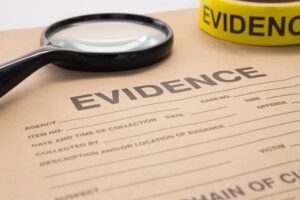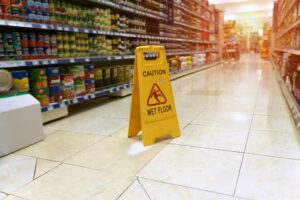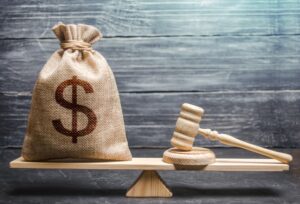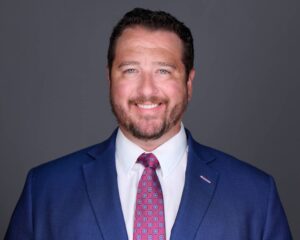How to file a claim against Wawa is probably not something you think about when you stop in for coffee, gas, or a quick meal in Florida. These stores are known for being bright, clean, and busy, and most visits go smoothly.
Unfortunately, accidents can still occur. A spilled drink can leave a slippery floor, a malfunctioning gas pump can create unexpected dangers, or unsafe conditions in the parking lot can lead to serious injuries.
If you’ve been injured in an accident at a Wawa store or on its property, you may be dealing with serious injuries, mounting medical bills, and time away from work. It’s natural to start looking into how to file a claim against Wawa and what steps are involved. This process often means going up against a large corporation with established systems designed to handle claims and protect its own interests.
You don’t have to navigate this process alone. An experienced premises liability attorney can guide you, help gather evidence, and fight for your rights. To discuss your case and explore the legal paths available to you, contact the team at Englander Peebles at (954) 500-4878 today.
How an Englander Peebles Attorney Manages Your Wawa Claim
When you bring an injury claim against a large, popular company like Wawa, you are not simply dealing with the manager of your local store. You are up against their corporate risk management department and their insurance carriers, all of whom are focused on protecting the company’s financial interests by limiting claim payouts.
An experienced attorney with Englander Peebles is ready to level the playing field, protect your legal rights, and serve as your dedicated advocate throughout the entire process, allowing you to focus on your health.
We Launch an Immediate and Independent Investigation of the Accident
 Rather than solely relying on Wawa’s internal incident report to understand what happened, our legal team launches an immediate and independent investigation into the circumstances of your accident. This may involve dispatching an investigator to the specific Fort Lauderdale, Pompano Beach, or Hollywood Wawa where you were injured to photograph and document the scene before conditions are changed or evidence is lost.
Rather than solely relying on Wawa’s internal incident report to understand what happened, our legal team launches an immediate and independent investigation into the circumstances of your accident. This may involve dispatching an investigator to the specific Fort Lauderdale, Pompano Beach, or Hollywood Wawa where you were injured to photograph and document the scene before conditions are changed or evidence is lost.
One of the most important first steps is sending a formal spoliation letter to Wawa’s corporate headquarters. This letter legally requires them to preserve all evidence related to your accident. Most critically, it demands they retain any surveillance footage from indoor or outdoor cameras, as these recordings are often overwritten after a short time.
We also work to locate and interview witnesses, such as other customers or store employees, who saw the incident or can provide testimony about how long the hazardous condition existed before your injury.
We Handle All Communication with Corporate Representatives
When you hire our firm, we step in right away to handle all communication with Wawa and its insurance company so you can focus on recovering from your accident. We immediately let their claims department or insurance carrier know that you have legal representation.
From that point on, every phone call, email, and request for paperwork comes straight to us instead of you. This protects you from adjusters who might try to get a recorded statement that could later be used against you.
Our team stays on top of every deadline and handles every detail with care and professionalism.
Building Your Case with Comprehensive Evidence and Expert Support
To build a strong claim, we make sure there is clear evidence showing that Wawa’s negligence caused your injuries and losses. We work directly with your doctors to gather full medical records, billing information, and detailed reports that explain your injuries, the treatment you’ve needed, and what your long-term recovery may look like.
If your case requires additional support, we work with highly regarded experts to strengthen your claim. This could include a retail safety expert who can explain how Wawa’s maintenance or inspection practices fell short of accepted industry standards, or a life care planner who can project future medical expenses if your injuries are permanent. This level of preparation shows Wawa’s team that we are serious about pursuing a fair resolution on your behalf.
When you are hurt on someone else’s property, your rights are governed by an area of law called premises liability. In Florida, property owners are required to keep their premises reasonably safe for visitors. The exact level of responsibility depends on the visitor’s legal status at the time of the injury.
Your Legal Rights as a Wawa Customer in Florida
As a customer at a Wawa, whether you are inside ordering a sandwich or outside filling up at the pumps, Florida law considers you a business invitee. This status is important because it means Wawa owes you the highest level of care. That duty has two parts: addressing hazards they know about and proactively looking for hazards they should know about.
Wawa must take reasonable steps to repair or warn you about any dangerous conditions its employees are aware of. Just as importantly, the company is expected to regularly inspect the property to identify and fix hidden risks before they cause harm. Simply saying “we did not know about the spill” is not a valid defense if a reasonable inspection would have uncovered the danger.
Proving Wawa Had Notice of a Hazard in a Florida Slip and Fall Claim
To succeed in a slip and fall claim in Florida, you must show that the property owner had “notice” of the hazard that caused your injury. Florida Statute § 768.0755 specifically applies to accidents involving “transitory foreign substances,” such as a liquid spill.
Your attorney must prove either actual notice or constructive notice. Actual notice means showing that Wawa employees were aware of the hazard, whether because they created it, saw it, or were informed about it before your fall.
Constructive notice is more common and requires showing that the hazard was present long enough that Wawa employees should have discovered it during regular inspections. Evidence like footprints or cart tracks through a spill, witness statements about how long the substance was there, or surveillance footage can all help establish that the store should have known about the danger.
Common Causes of Accidents and Injuries at Wawa Stores in Florida
A busy Wawa combines a convenience store, a food service area, and a gas station, creating a unique environment with many potential hazards for customers. The constant flow of shoppers and vehicles means conditions can change quickly, and accidents can happen with little warning.
Slip and Fall Hazards Inside Wawa Stores
Slip and fall incidents are among the most common causes of injuries in convenience and grocery stores. The steady movement of customers and the presence of liquids and food create ongoing risks of slippery floors.
Frequent causes of slips and falls include:
- Spilled coffee, soda from fountain dispensers, or dropped food items near checkout counters and food preparation areas
- Leaks from refrigerator or freezer cases containing drinks and dairy products
- Rainwater tracked in at entrances and exits, particularly during heavy Florida storms
- Grease or other slick substances near hot food service areas
These conditions can quickly turn a routine visit into a serious accident if the store fails to monitor and address them promptly.
Trip and Fall Hazards and Other In‑Store Risks
Wawa’s fast-paced operations mean trip hazards can appear unexpectedly. Aisles and walkways should remain clear to keep customers safe, but obstacles sometimes arise.
Common trip and fall hazards include:
- Stocking carts, boxes, or hand trucks left in aisles during restocking
- Merchandise or promotional displays that stick out into walking paths
- Floor mats that are bunched up or curled at entrances or near drink stations
- Items falling from shelves that are overfilled or improperly stocked
Any of these issues can create dangerous situations, making it critical for staff to stay vigilant and maintain safe conditions throughout the store.
Hazards at Gas Pumps and in Parking Areas
Customer safety outside the store is just as important. Gas pump areas and parking lots at Wawa locations often experience heavy traffic and can present serious dangers.
Potential outdoor hazards include:
- Oil slicks or gasoline spills at pump stations that create slippery surfaces
- Inadequate lighting that makes it hard to see wheel stops, potholes, or cracked pavement
- Faded or unclear traffic markings that increase the risk of collisions
When these hazards are not properly addressed, they can lead to serious injuries for customers entering or leaving the property.
The Steps to Take After You Are Injured at a Wawa in Florida
The actions you take after an injury can have a significant impact on both your health and any potential legal claim. Once you have reported the incident to store management and received initial medical attention, taking the following steps can help safeguard your rights and strengthen your case.
Seek Prompt and Ongoing Medical Care
Your health should remain your top priority, and consistent medical treatment is also essential for documenting your injuries. Even if you feel your injuries are minor, it is important to undergo a thorough medical evaluation because issues such as concussions or internal injuries may not show immediate symptoms.
Continue attending follow‑up appointments and see any specialists your doctor recommends so there is a clear, continuous medical record linking your injuries to the accident.
Preserve Important Evidence
Physical evidence can play a critical role in proving your claim. Keep the clothing and shoes you were wearing, especially if they are torn or stained, and avoid washing them by storing them in a sealed bag.
Hold onto receipts from your visit to establish that you were on the premises, save the contact information of any witnesses, and back up any photos you took of the accident scene or your injuries. These details can greatly assist your attorney in building a strong case.
Be Careful When Speaking With Claims Adjusters
It is common for Wawa’s insurance representatives to reach out and ask for a recorded statement about the incident. You are not obligated to provide one, and it is wise not to.
Adjusters are trained to ask questions that could lead you to downplay your injuries or accept some fault. A polite refusal and a referral to your attorney ensure that your interests remain protected throughout the process.
Determining the Value of Your Injury Claim
 If Wawa’s negligence caused your injuries, you may be entitled to compensation for both financial and personal losses. A skilled attorney will carefully review the evidence and present a comprehensive claim that fully accounts for the impact the accident has had on your life.
If Wawa’s negligence caused your injuries, you may be entitled to compensation for both financial and personal losses. A skilled attorney will carefully review the evidence and present a comprehensive claim that fully accounts for the impact the accident has had on your life.
Documenting Economic Losses
Your attorney will collect medical bills, receipts, employment records, and expert reports to calculate tangible losses such as past and future medical expenses, therapy costs, and lost income. This may also include the loss of future earning capacity if your injuries prevent you from returning to your prior work.
Accounting for Non‑Economic Damages
Beyond financial losses, you may also seek compensation for the personal impact of your injuries, including pain and suffering, emotional distress, scarring, or the loss of enjoyment in daily activities. Agencies like the CDC provide valuable data on how profoundly fall injuries can affect someone’s life, highlighting the importance of pursuing fair compensation.
How Florida Law Affects Your Premises Liability Case
Several Florida statutes will have a direct impact on your premises liability claim against Wawa. An experienced attorney can guide you through these legal complexities and use them to your advantage. Although OSHA safety guidelines for retail environments are not legally binding in private injury claims, they can be used by experts to illustrate what reasonable safety practices should look like.
Comparative Negligence and Shared Fault
Florida uses a modified comparative negligence system, as defined in Florida Statute § 768.81. This means if you are found to be partially at fault for the accident, your compensation may be reduced by your percentage of fault. It is important to know that if you are found to be more than 50% responsible, you may be barred from recovering any damages at all.
The Statute of Limitations
You have a limited time to file a lawsuit in Florida. Under Florida Statutes § 95.11(4)(a), you generally have only two years from the date of the accident to file. Investigating a complex claim against a large corporation takes time, so it is important to contact an attorney well before this deadline approaches.
FAQs About How to File a Claim Against Wawa
What should I do immediately after I get hurt in a Wawa?
After reporting the incident to a manager and seeking any necessary immediate medical care, it can be very helpful to take photos of the exact location where you fell and what caused it. If anyone saw what happened, asking for their name and phone number can also be very important for your attorney’s investigation later on.
Will I have to sue Wawa to get compensation for my fall?
Not necessarily. Most injury claims are settled through negotiations between your lawyer and the company’s insurance carrier or claims administrator. A lawsuit is usually filed only if the company is unwilling to negotiate in good faith or make a fair settlement offer. A settlement is the most common outcome.
How much does it cost to hire a lawyer for an injury that happened at a Wawa?
Our firm handles these cases on a contingency fee basis. This means there are no upfront costs or fees for you to pay. We only receive a fee if we successfully recover compensation for you through a settlement or a verdict. If we do not win your case, you owe us nothing.
What if Wawa’s insurance company contacts me and offers to pay my medical bills?
You should be very cautious about accepting any offer or signing any documents without speaking to an attorney first. A quick offer to pay medical bills often comes with a release form that prevents you from seeking any further compensation for lost wages, future medical needs, or your pain and suffering.
How can an attorney prove that Wawa should have known about a spill?
Proving “constructive notice” often relies on evidence gathered during the investigation. Surveillance video is the best tool, as it can show exactly how long a hazard was present.
We also use store cleaning logs, witness statements, and expert testimony about reasonable safety practices to establish a timeline and show that an employee should have discovered and addressed the hazard before your injury occurred.
Take Action After a Wawa Injury to Protect Your Legal Rights

Warren Q. Peebles, Premises Liability Lawyer
An injury at a place as familiar as your neighborhood Wawa can leave you in pain and unsure about what to do next. You are not required to accept a quick denial from a corporate claims administrator.
You have the right to seek fair compensation when a property owner’s negligence causes you harm. Taking legal action is a way to protect your future and your family while holding a large corporation to the same safety standards expected of everyone else.
The legal team at Englander Peebles has the experience and resources to build a strong case, even against large corporations. We are committed to providing focused and personalized representation.
Call us today at (954) 500-4878 for a free and confidential case evaluation.


